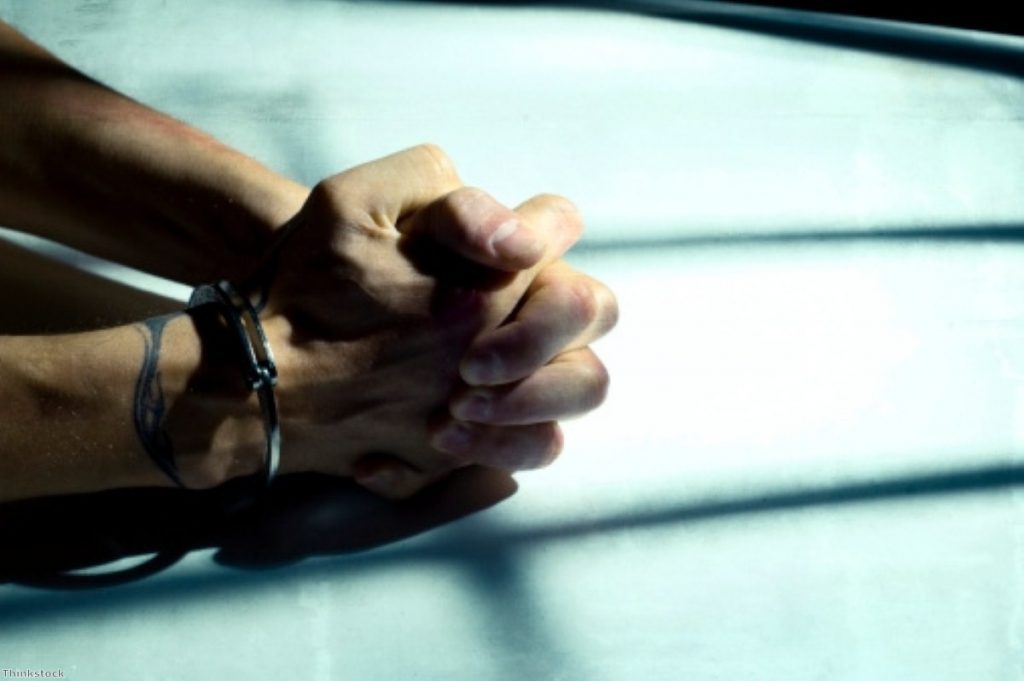The denial of rape in prison
The denial of rape in prison takes place at four levels: The personal level, the prisoner level, the officer level and the institutional level.
"It's such an assault on masculinity," one victim of a sexual assault in prison tells me.
"People are incredibly embarrassed and humiliated by being a victim of sexual assault. There's so much baggage with it. They don't want to admit to it."
People – men and women, gay and straight – are scared of what their partner will think of them. They don't see themselves, and don't want to see themselves, as victims. This is one of the reasons many prison assaults go unreported.


That's the personal level of denial.
Reporting the incident can lead to attacks from other prisoners for grassing on fellow inmates. One punishment involves filling a kettle with sugar, so that when the boiling water is poured on a prison's skin it clings to it. This is called 'napalm'. Sometimes bleach tablets are added to cause skin discolouration. This is called 'jugging'.
Many prisoners and former prisoners hate the discussion of rape in jail. If the view takes hold that it is commonplace, people they speak to will think that they were either a rapist or a rape victim. Neither is an attractive proposition. They don't want the stigma.
That's the prisoner level of denial.
If a prisoner does find the courage to report their sexual assault to a guard, they are often badly let down by the response.
"They don't want to hear it," a former prisoner says. "I did report it. I was moved rooms. That's literally all that happened. If they do acknowledge it, they have to file a report with the local police. The police come in and interview people. They have to find a secure prison at short notice willing to take the other party. That's paper work. It's administration. It's cost."
But inaction is often the best a prisoner can hope for. Very often, reporting a sexual assault can lead to you actually being punished by prison authorities.
While the complaint is investigated, both individuals are often put in segregation – a step down even from the brutal 'basic' regime. Inmates are stripped, put into old prison clothes and then left in a cell – often an underground cell – for most of the day.
I'm told of one man who was raped without a condom and is currently waiting for his HIV test results. He never reported the crime because it almost certainly would have resulted in a transfer to a closed prison, setting him back two years.
This is a common fear in open prisons – non-gated institutions where prisoners stay in advance of release. Prison authorities are jittery and risk-averse. If they have reason to believe someone is distressed, they will often consider them a flight risk and send them back to a closed prison while they investigate. Sometimes this even happens when someone's wife has left them. It's a significant disincentive to the reporting of sexual assaults.
Some stories are even worse than that. I'm told about one sexual assault victim who refused to leave his cell because he was afraid of running into his assailant. He was already on suicide watch, but instead of trying to work out why he was refusing to go to his job, prison officers punished him for it. Refusing to attend work, after all, is a prison offence.
"Solitary confinement has a terrible effect," a former prisoner says. "You're in a cell with no books, no TV, no radio, nothing. And you're like that 23 hours a day – not allowed out to have a shower, or phone home. You can't earn money, so you can't buy stamps, so you can't even write to your family."
In the end, the victim killed himself.
That's the officer level of denial.
Above it all is the institutional level of denial. Chris Grayling blocked an investigation into sex in prison – consensual and non-consensual – by the Howard League for Penal Reform. The decision to block the investigation has triggered a media outcry and prompted a pledge from shadow justice secretary Sadiq Khan to look "favourably" on a similar request if Labour wins the election. But for the time being it still stands. No-one wants to talk about it: not the victims, not the prisoners, not the officers. And now the Ministry of Justice has put its stamp of approval on this culture of denial.
More than one former prisoner who talked about the subject said they had never seen or heard of a rape or sexual assault in prison, despite one of them having been behind bars for 30 years. Some said anyone who tried to rape was "run off the wings". It's clear that different cultures exist in different jails and it's certainly true that different cultures exist in the main prison to the protected wing, where sex offenders are usually placed.
Perhaps that is the reality – a relatively benign one of very few occurrences. Certainly that was broadly what the Howard League expected to find when they planned their investigation – that rape and sexual assaults were relatively rare behind bars.
Or maybe the reality is much darker. Maybe inmates see the prisoners 'and their boys' culture in some prisons and fail to recognise them for the coercive relationships they are. Maybe we're looking at a public health catastrophe, with a mental health time bomb to follow. Maybe victims don't talk, prisoners avoid the subject and authorities fail.
We don't know. Because Grayling won't allow anyone in to investigate.

